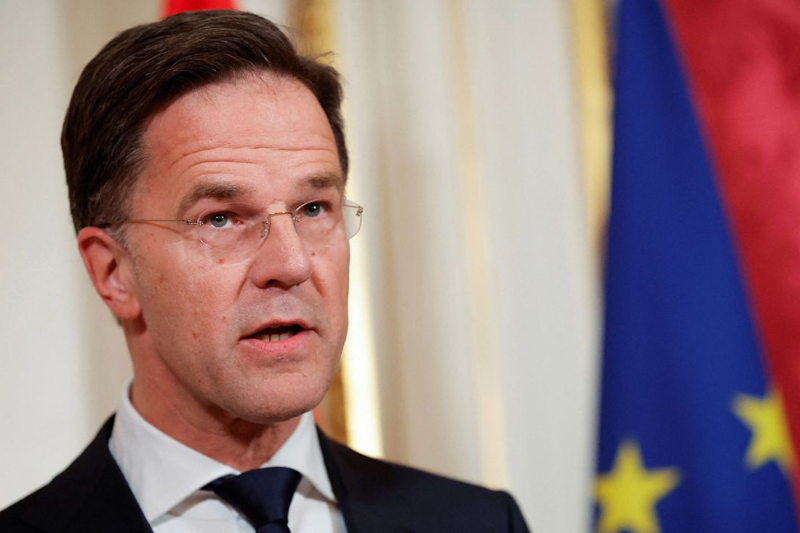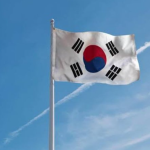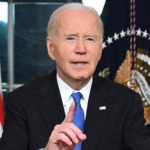
dutch government resigns after failing to agree on asylum measures
The country will have a general election later this year because Prime Minister Mark Rutte, who had been in office the longest, quit. Rutte and his government will stay in power as caretakers until a new coalition of parties is chosen to run the country.
The Dutch government fell apart on Friday because the four parties in the coalition couldn’t agree on how to stop migration, an issue that has split countries all over Europe.
The country will have a general election later this year because Prime Minister Mark Rutte, who had been in office the longest, quit. Rutte and his government will stay in power as caretakers until a new coalition of parties is chosen to run the country.
Rutte told reporters in The Hague, “It’s no secret that the coalition partners have very different ideas about migration policy.” “And today, we have to come to the sad conclusion that these differences can’t be solved. So, I’ll write to the king right away and tell him that the whole Cabinet is resigning.”
Even before Rutte officially said he was stepping down, lawmakers from the opposition were already calling for new elections.
Geert Wilders, who is in charge of the Party for Freedom, which is against immigration, tweeted, “Quick elections now.” Jesse Klaver, who is the leader of the Green Left, also called for elections. He told the Dutch news station NOS, “This country needs a change of direction.”
Rutte was in charge of late-night meetings on Wednesday and Thursday, but they didn’t lead to a deal on how to handle immigration. At the last round of talks on Friday night, all of the parties agreed that they couldn’t agree, so they couldn’t stay in the coalition together.
The decision showed the ideological differences that have been there since the coalition was formed just over 18 months ago. Two parties, Rutte’s conservative People’s Party for Freedom and Democracy and the Christian Democrats, want stricter measures to be taken against immigration, while D66 and ChristenUnie, another centrist party, do not.
In other parts of Europe, people from different political parties are having similar conversations as refugees, and people looking for a better life make dangerous sea journeys from northern Africa to reach the continent. Also, tens of thousands of people have left Ukraine to get away from the war there.
Migration is going to be a big issue in the European Union elections next year, but the issue came up early in the Netherlands, a country that has always been torn between being open to foreigners and becoming more closed off to them.
Rutte’s coalition tried for months to come up with a plan to cut down on the number of new immigrants coming to the country of almost 18 million. Reports say that one of the ideas was to make two types of asylum: a temporary one for people trying to escape war and a permanent one for people trying to escape persecution. Another idea was to limit the number of family members who could come to the Netherlands with asylum-seekers.
Keep Reading
Last year, more people were coming to the Netherlands than there were beds, so hundreds of asylum seekers had to sleep outside in dirty conditions near an overcrowded reception center. Help came from Dutch aid agencies.
The Netherlands’ statistics office says that just over 21,500 people from outside of Europe asked for asylum there in 2022. Tens of thousands more people moved to the Netherlands to work and study.
The number of people has made it harder to find a place to live in a country where there are already many people.
Rutte’s government worked on a law that would force municipalities to find housing for asylum-seekers who just arrived, but the law hasn’t yet been approved by both houses of parliament.
The prime minister also supported efforts by the European Union to stop people from coming to the 27-country bloc. Rutte went to Tunisia last month with his Italian counterpart and the president of the EU’s executive commission to offer more than 1 billion euros in financial aid to save the North African country’s struggling economy and stop people from leaving its shores to go to Europe.
Rutte’s fourth coalition government, which took office in January 2022, was the result of the most extended coalition talks in the history of Dutch politics.
In the 150-seat lower house of the Dutch parliament, there are 20 different political parties. This means that the election for the lower house will take place later this year in a very divided political environment.









